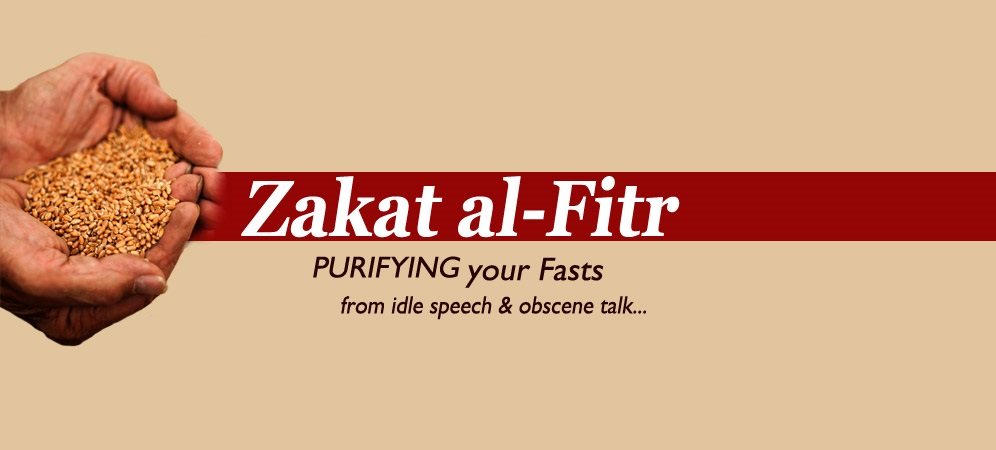Fitrana: A Beacon of Compassion and Solidarity in Ramadan
By: Javid Amin
Ramadan, a month of spiritual rejuvenation and self-reflection, culminates in the joyous celebration of Eid al-Fitr. As Muslims across the globe break their fast and gather with loved ones to mark the end of this sacred period, the spirit of sharing and compassion takes center stage. At the heart of this celebration lies Fitrana, an obligatory charity that embodies the core Islamic values of generosity, inclusivity, and social responsibility. In this article, we delve into the deeper meaning of Fitrana, its significance, and how it serves as a beacon of compassion and solidarity in Ramadan.
The Origins and Essence of Fitrana
Fitrana, also known as Zakat al-Fitr or Sadaqat al-Fitr, traces its roots back to the teachings of Prophet Muhammad (peace be upon him). His words, “None of you truly believes until you love for your brother what you love for yourself,” encapsulate the essence of Fitrana. It emphasizes the importance of extending kindness and support to those in need, especially during times of celebration. Fitrana serves as a tangible expression of this principle, bridging the gap between the fortunate and the less privileged and fostering a sense of community and shared joy.
Beyond Charity: The Spiritual Dimensions of Fitrana
While Fitrana is a form of material assistance, its significance transcends mere charity. Many scholars believe that Fitrana purifies the fasting person from any shortcomings or transgressions that may have occurred during Ramadan. It serves as a form of expiation, allowing Muslims to enter Eid with a clean slate and a renewed sense of devotion. Moreover, Fitrana promotes social harmony and reduces inequalities within the Muslim community, fostering a sense of unity and togetherness. The act of giving becomes an act of worship, strengthening one’s connection with Allah (SWT) and embodying the Islamic principle of taqwa (God-consciousness).
Understanding the Obligation of Fitrana
The responsibility of giving Fitrana falls upon every free Muslim who possesses enough provisions to sustain themselves and their dependents for the day of Eid and the night before. This obligation extends to those who have reached puberty, are of sound mind, and have surplus food or wealth beyond their basic needs. The head of the household is responsible for providing Fitrana for their dependents, including children, elderly parents, and spouses.
Determining the Amount of Fitrana
Traditionally, Fitrana is determined by the prevailing staple food in a particular region, typically equivalent to a Saa, or roughly three and a half kilograms of wheat, barley, dates, or raisins. This quantity ensures that even the poorest individuals can afford a celebratory meal on Eid. In today’s world, many Muslims opt to pay Fitrana in cash, with the amount based on the local market price of the designated staple food. Reputable Islamic institutions and local scholars often announce recommended Fitrana amounts in cash to simplify the process for the community.
Distributing Fitrana with Care
The distribution of Fitrana requires thoughtful consideration to ensure it reaches those most in need. The Prophet Muhammad (PBUH) emphasized prioritizing certain recipients, including relatives, poor neighbors, and the needy in general. It’s important to exercise caution and verify the eligibility of recipients to ensure that Fitrana reaches those who genuinely require assistance. Additionally, transparency and communication are essential, with some individuals providing receipts or documentation to recipients, especially when giving significant amounts of Fitrana in cash.
The Enduring Legacy of Fitrana
Fitrana stands as a testament to Islam’s emphasis on social justice and compassion. It serves as a powerful reminder of the importance of generosity and solidarity within the Muslim community. By fulfilling the obligation of Fitrana, Muslims not only fulfill a religious duty but also cultivate a spirit of empathy, generosity, and social responsibility that extends far beyond the holy month of Ramadan. The legacy of Fitrana continues to inspire acts of kindness and compassion, creating a ripple effect of positive change within society.
Conclusion: Embracing the Spirit of Fitrana
As Muslims around the world prepare to celebrate Eid al-Fitr, let us embrace the spirit of Fitrana with open hearts and open hands. Let us remember the profound significance of this obligatory charity, which serves as a beacon of compassion and solidarity in Ramadan. By fulfilling the obligation of Fitrana, we actively contribute to a more just and equitable society, fostering a sense of shared joy and alleviating the burdens of those less fortunate. In doing so, we embody the timeless values of Islam and honor the teachings of Prophet Muhammad (PBUH). As we gather with family and friends to mark the end of Ramadan, let us rejoice in the blessings of Eid al-Fitr and continue to spread love, compassion, and generosity to all.






